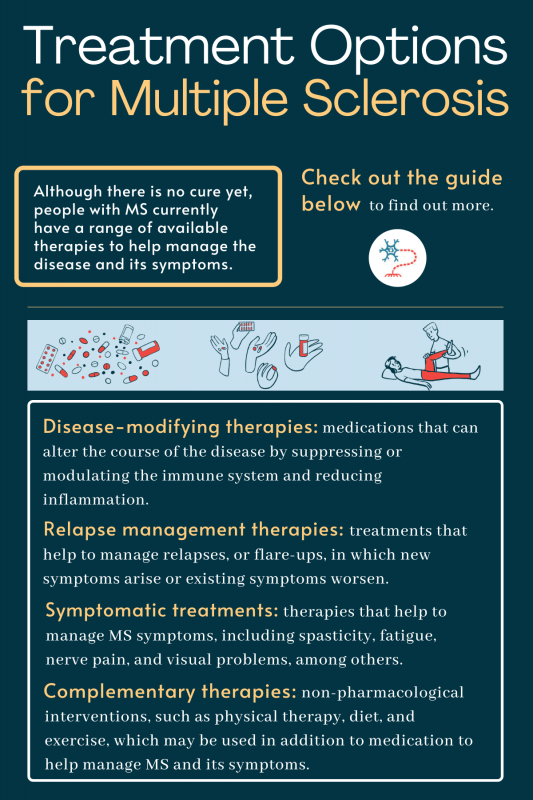FAQs about MS treatment options
There currently is no cure for multiple sclerosis (MS), but many treatments are available to help manage the disease. Some therapies aim to reduce disease activity and delay long-term disability progression. Others are used to address specific symptoms. The goal of any MS treatment plan is to improve patients’ long-term outcomes and overall well-being.
Yes. Three main categories of medications are used in multiple sclerosis: disease-modifying therapies, to prevent disease relapses and slow disability accumulation; relapse management therapies, to reduce the duration and severity of acute relapses; and symptomatic treatments, to manage specific symptoms associated with the disease.
Because multiple sclerosis affects everyone differently, it is difficult to predict how someone will respond to a specific treatment. Choosing the most appropriate approach should be a collaborative decision between the patient and their healthcare team, based on individual clinical factors, needs, and preferences. The potential risks and benefits of each option also should be carefully assessed.
Yes, multiple sclerosis treatment is generally covered by health insurance. However, coverage details can vary depending on the specific insurance plan and state regulations, so out-of-pocket costs may differ from person to person. Under the Affordable Care Act, health insurers cannot deny coverage, impose restrictions, or charge higher premiums due to a preexisting condition like multiple sclerosis.
Multiple sclerosis (MS) is a lifelong, chronic disease for which there is currently no cure. In some people, however, the disease progresses very slowly over time. These cases are sometimes referred to as inactive or “benign” MS, a term used to describe people who have had MS for at least 15 years with minimal symptoms and little to no disability.
Related Articles

 Fact-checked by
Fact-checked by 






